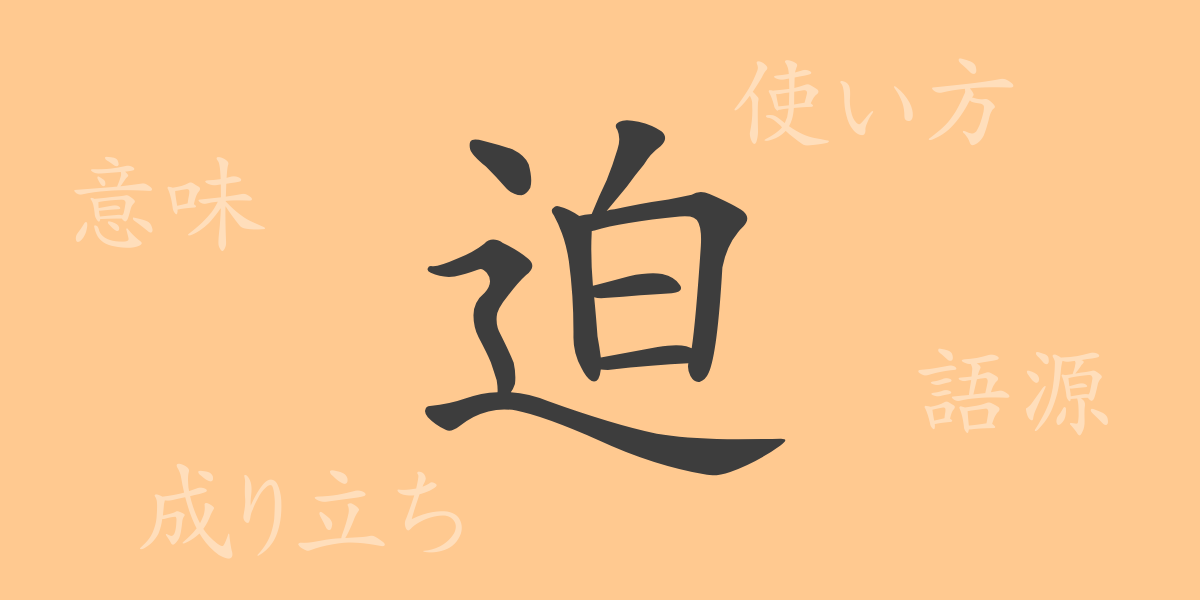In Japanese culture, there is a profound beauty in expressing emotions and situations vividly. Among the commonly used kanji characters, “迫” (はく, haku) plays a significant role in daily life. This article will delve into the history, meaning, and usage of the kanji “迫,” taking us on a journey to rediscover the richness of the Japanese language.
The Origin of 迫 (Etymology)
The kanji “迫” originated in ancient China and is composed of the radical “辵” (しんにょう, shinnyou), which represents walking or movement, combined with “白” (しろ, shiro), symbolizing brightness or clarity. The “辵” radical denotes movement or progression, while “白” helps clarify the direction of this movement. Together, these elements convey a sense of urgency or something approaching, embodying the concept of “迫る” (せまる, semaru), or “to press forward” or “to approach closely.”
Meaning and Usage of 迫
The kanji “迫” is primarily used to describe situations where something is approaching or imminent. It is often associated with urgency or a sense of being on the brink, such as in phrases like “時間が迫る” (じかんがせまる, jikan ga semaru) meaning “time is running out,” or “危険が迫る” (きけんがせまる, kiken ga semaru), meaning “danger is approaching.” Additionally, it can imply exerting pressure or making a strong demand on someone.
Reading, Stroke Count, and Radical of 迫
The kanji “迫” has various readings and is used in multiple contexts:
- Reading: On’yomi (音読み) reading is “ハク” (haku), and the Kun’yomi (訓読み) reading is “せまる” (semaru).
- Stroke Count: “迫” consists of 8 strokes.
- Radical: The radical is “辵” (しんにょう, shinnyou), symbolizing movement, which emphasizes the action of approaching.
熟語 (Jukugo), Idioms, and Proverbs Using 迫
There are numerous 熟語 (じゅくご, jukugo), idioms, and proverbs in Japanese that include the kanji “迫,” each with its unique meaning:
- 迫力 (はくりょく, hakuryoku): Refers to strength or overwhelming presence.
- 迫害 (はくがい, hakugai): To subject a person or group to unfair pressure or suffering.
- 催促 (さいそく, saisoku): To urge or hasten someone to do something, such as meeting a deadline or fulfilling a promise.
- 切迫 (せっぱく, seppaku): Describes a state of emergency, indicating that there is no time to waste.
- 期限迫る (きげんせまる, kigen semaru): Indicates that a deadline is approaching.
Conclusion on 迫
Each kanji character carries profound meanings tied to its form, and “迫” is no exception. The combination of “辵,” representing movement, and “白,” representing clarity, effectively conveys the sense of urgency and importance associated with the action of approaching. Widely used in everyday conversation, literature, and business contexts, “迫” symbolizes the richness of Japanese expression. By understanding the meanings and applications of “迫,” we can aim for more enriched communication in Japanese.

























